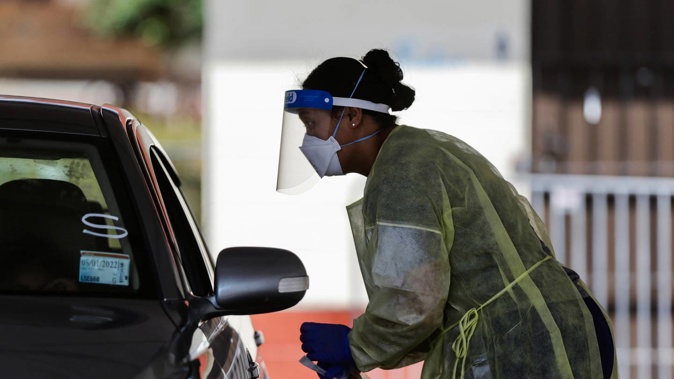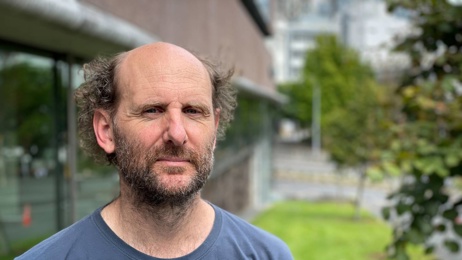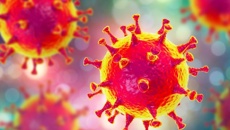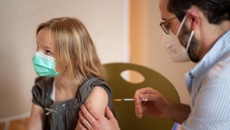
There are 2522 new Covid cases today and 100 people in hospital – both new records.
The majority of the new cases – 1799 – are in Auckland, but cases are growing rapidly in other areas.
There are 188 in Waikato, 111 in the Southern DHB area, 86 in Bay of Plenty, 53 in Nelson Marlborough and 54 in Capital and Coast.
Other cases are in Northland (41), Canterbury (76), Hutt Valley (25), Hawke's Bay (24), MidCentral (13), Lakes (11), Wairarapa (14), Tairāwhiti (12), Taranaki (9) and Whanganui (2) and South Canterbury (1).
Three other cases are in an unspecified location.
In the last 24 hours there were 27,825 tests.
Nobody is in intensive care or a high dependency unit.
There were 17 new cases at the border.
There are now 13,785 active community cases - meaning cases identified in the past 21 days who haven't yet recovered.
Of those in hospital, 45 are at Auckland, 30 at Middlemore, 10 at North Shore, 11 at Waikato, one at Tauranga, and one each at Northland, Rotorua and Tairāwhiti. Their average age is 56.
Of patients in hospital in the Northern Region, 72 per cent are fully vaccinated and 14 per cent are unvaccinated. Another 3 per cent are partly vaccinated and it's not known whether the remaining 11 per cent are vaccinated.
Vaccination information can't be reported right now due to a database issue. Urgent work is being done to fix this, the Ministry said.
That includes information on any improvement in booster rates in the Auckland and Waikato DHBs. Just 62 per cent of the eligible population in either region has been boosted, the lowest rates in the country.
Nelson Marlborough has the highest booster rate, with 73 per cent of the eligible population having been boosted. Wairarapa, Capital and Coast, South Canterbury and Southern DHBs are close behind at 71 per cent.
RATs at Auckland testing centres
People needing a test in Auckland may be given a rapid antigen test from tomorrow when attending swabbing stations, the city's health officials say.
People will be screened upon arrival by testing staff to determine which Covid-19 test is most appropriate for them. Those who meet certain criteria will be able to test themselves at home with a rapid-antigen test (RAT) to get an indication of whether or not they have Covid-19. Those who test positive will then need to return to a testing centre to get a more comprehensive PCR test.
"Demand on community testing centres across Auckland has remained high, and we need to conserve PCR testing capacity to support those who need it the most," said Matt Hannant, director of operations for the Northern Region Coordination Centre.
"PCR testing is the most definite method of confirming someone has COVID-19 which means ensuring the people and communities who are most affected by the Omicron outbreak have access to PCR testing resources.
"To maintain the levels of PCR testing needed, we are widening the use of RATs from tomorrow to include community testing centres. This will take the pressure off the laboratories and lessen wait times at testing sites."
These RATs will be free for those at testing centres.
On Saturday, 1901 community Covid cases were announced, while on Friday there were a record 1929.
There were almost 10,000 active community cases in New Zealand yesterday.
There were also 73 people in hospital with Covid, one of whom was in intensive care, the ministry said.
Cases have been detected in every district health board in New Zealand, but most are still in Auckland.
Almost half of all cases are in South Auckland, coming under the Counties Manukau district health board.
More than 2.1 million people have received a booster dose, but take-up in Auckland is lower than other DHBs at 62 per cent of those eligible. Aucklanders are being urged to get the additional jab as cases continue to surge in the city.
Epidemiologist Michael Baker has said case numbers were doubling roughly every four to five days.
The University of Otago professor believed on current trends we could reach 10,000 daily cases by early March.
However, Baker said even if we did reach that number of cases, we may not actually see them because of a lack of testing capacity.
It's not clear if case numbers will continue their exponential climb today, given testing numbers typically drop over the weekend.
However, today and yesterday long lines have been seen at testing stations in South Auckland, with the Ministry of Health telling Aucklanders to expect delays getting results due to high demand.
People are being asked to only get tested if they are a close contact, have Covid symptoms, or have been told to get tested by a health official.
Meanwhile, despite rapidly rising case numbers, protesters at Parliament continue to call for the ending of all public health restrictions including vaccine mandates.
Police Commissioner Andrew Coster today admitted the protest "shouldn't have got to this", but said New Zealanders would not accept the level of confrontation needed to stop it.
Act leader David Seymour has issued a statement suggesting it may be time to rethink the need for vaccine mandates.
Take your Radio, Podcasts and Music with you









